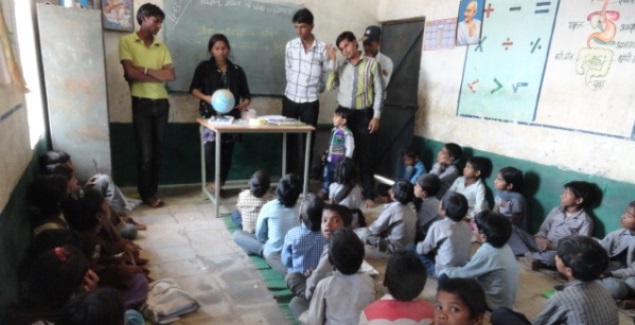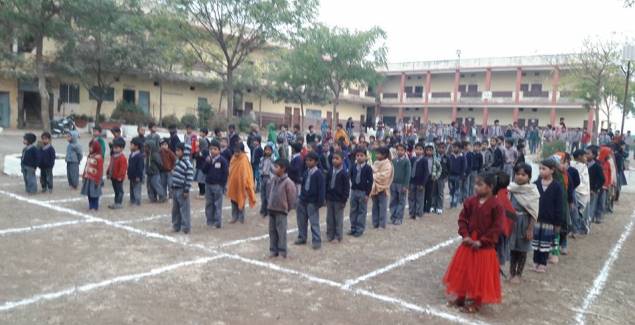Sampark Madhya Pradesh
Education and Skill Development
 A glimpse of a classroom in a primary school somewhere in the operational area
A glimpse of a classroom in a primary school somewhere in the operational area
Programmes under education and skill development seek to mainstream children and youth of poor, weaker and backward families with society by providing them with quality education and vocational skills.
Supplementary Education Programme
This programme covers 10 most educationally backward villages where the children had very little knowledge of reading, writing and arithmetic. A total of 295 children joined the education programme initially in 2013 but as the impact became visible more children have joined and presently 1512 are enrolled.
In addition to routine teaching, other activities are conducted in the school so that children can be attracted and inspired. A positive environment is created through leadership development, organisation of bal panchayats (children’s forums) and workshops, bal mela (children’s fairs) and field visits for entertainment and mental development of children. The parents are kept informed of and involved in all these activities.
Teachers’ training are given due importance and held regularly. Parents’ association meeting, creative letter writing workshops, sports competitions and science, mathematics and language workshops are held. Adolescent group meetings are also held.
Buniyadi Shala
 Children of Buniyadi Shala during a programme. One can see in the background building housing the school, located inside Sampark campus
Children of Buniyadi Shala during a programme. One can see in the background building housing the school, located inside Sampark campus
There is a residential school up to the 10th class at Sampark Campus providing quality education to tribal children. In addition to the prescribed Madhya Pradesh State Board syllabus the children learn about their own local livelihoods and culture and get skill training. The children, thus, receive a localised education that makes them sensitive to the situation prevailing in their area and the ways in which local problems can be solved.
Buniyadi Shala is a humble answer of Sampark to the extremely sorry state of education in Madhya Pradesh, particularly in remote Adivasi areas. The Right to Education assuring eight years of schooling to all children is there on paper but the reality is quite different. The poor people, who find it difficult to make ends meet as it is, are rarely able to spare the money for the education of their children. Therefore, it devolves on the Government to provide free schooling to the poor children.
In remote Adivasi areas, the Government does not provide for the education of children adequately. What it does is appoint some guest teachers on an ad hoc basis. Each year at the start of the academic session in June advertisements are given asking for applications from prospective teachers. By the time the whole process of selection is over it is about October. So a single teacher per school is appointed in November and she is retained till March when the examinations are conducted and then the teacher is laid off resulting in only five months of teaching in a year.
The teacher is paid only Rs 2400 per month for teaching children of various ages in multiple grades in one school housed in the hut of one of the villagers. It is easy to imagine what effect on teaching quality such working conditions will have. In most cases these teachers do not teach at all. Since all children are passed automatically in Madhya Pradesh till they reach class ten, all the teachers have to do is maintain false records of attendance and then submit false evaluation reports. Thus, in government records there is hundred percent enrolment and passing of children in all the classes.
The children in Buniyadi Shala are taught well and evaluated properly. At the end of the session 2015-16, out of 187 children enrolled 140 passed their exams in A grade, 46 in B grade and only one in C grade.


